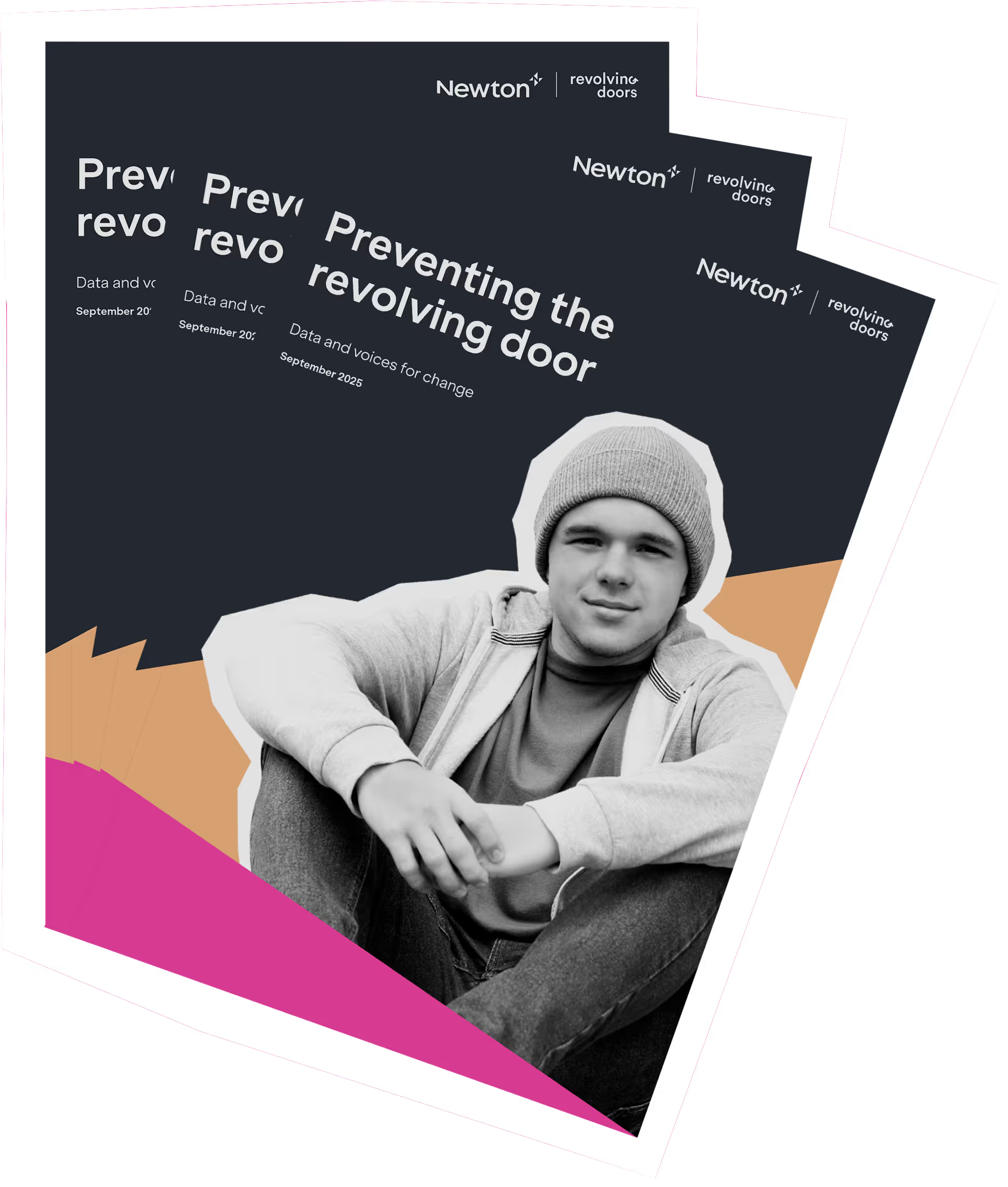Closing the justice system’s ‘revolving door’
Tens of thousands of people are trapped in a ‘revolving door’ of crisis and crime. The underlying causes of this vicious cycle of recurring low-level offending go unmet by systems and services, putting strain on our justice system and wider society with a cost to the UK economy of at least £1.18bn annually.




A better way is possible
This groundbreaking research with Revolving Doors and Newton combines lived experience with advanced data to show that a three-pronged approach of prevention, rehabilitation, and joined-up action across health, welfare, housing, and the justice system can transform outcomes for those caught in the revolving door.
Even a 1% reduction in reoffending could save the UK government £65 million annually, ease pressure on essential services, reduce crime, prevent further trauma, and support people to lead productive, fulfilling lives - helping to build a safer, stronger country for everyone.
Key findings
These findings highlight key trends and patterns that align with lived experience, helping to shape more effective, person-centred interventions.
National impact on prisons, probation, courts, and police alone
Socio-economic costs of the revolving door cohort: £1.65bn from recorded crime, rising to £4–5bn when unrecorded crime and additional factors are included — nearly a quarter of the UK’s total reoffending costs.
Estimated wider socio-economic impact, including unrecorded crime and additional costs.
Committed by this cohort, driven by overlapping unmet needs
Annual cost of reoffending to the UK economy; even a 1% improvement saves £65m annually.
Upper-bound estimate including highly prolific, high unmet-need, lower-risk individuals
Would save £65m annually
Meet the definition of the revolving door cohort in England and Wales
Solutions for policy makers and practitioners
This new evidence, paired with practical solutions, is designed to support policymakers, practitioners, and people with lived experience in building a smarter, more compassionate approach: one that reduces the strain on services, lowers costs, and most importantly, improves outcomes for individuals.


Useful links

Tackling persistent crime by addressing the root causes, not just the symptoms.

This research draws on in-depth lived-experience interviews and powerful cross-service data analysis to demonstrate how unmet need and miss opportunities create a revolving door effect.

Research revealed clear patterns in the lives of people caught in the revolving door of crime, reflected both in the 20 interviews and in service data.

A collaborative approach, where lived experience meets cutting-edge data analytics.

The findings of this report have significant implications for policymakers, justice system leaders, and practitioners.

Combining detailed reference data with local socio-economic information revealed how the size, shape, and needs of the revolving door cohort vary across England.
Read more about the research process, key findings, and expert recommendations.
